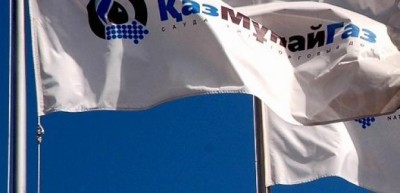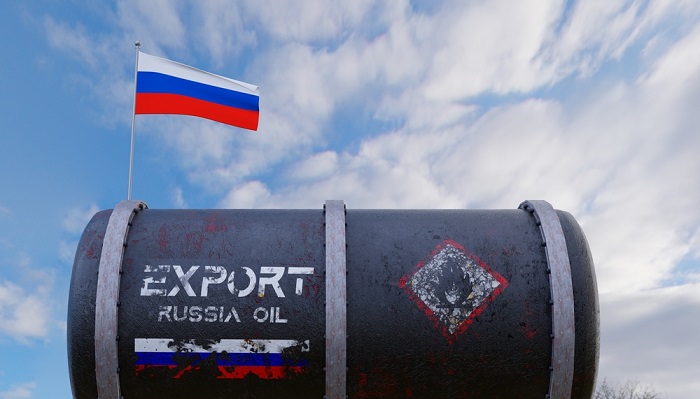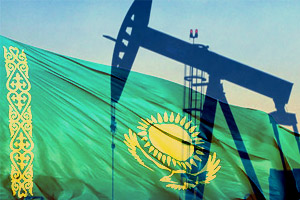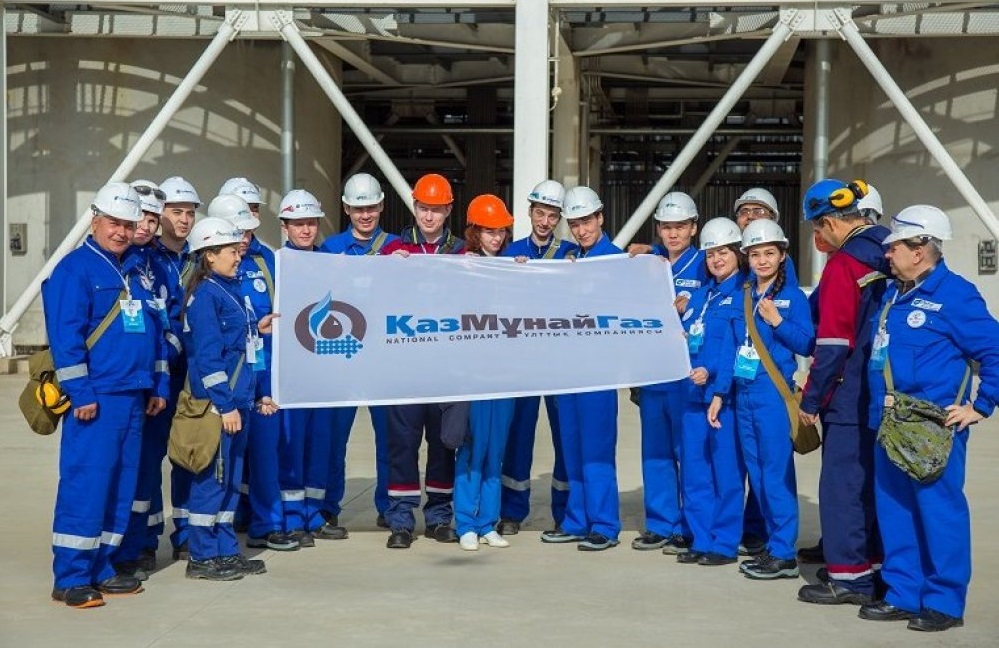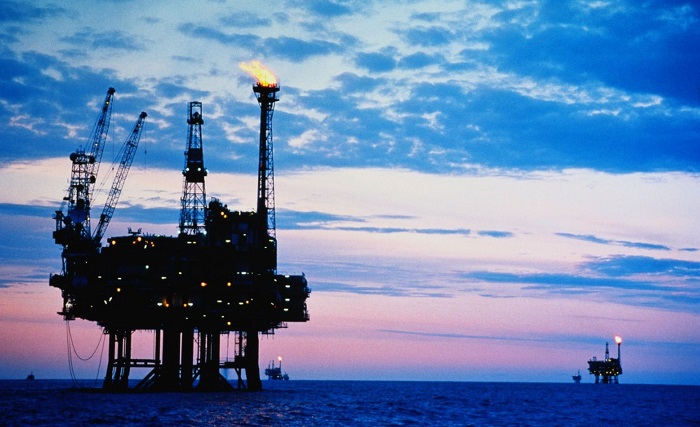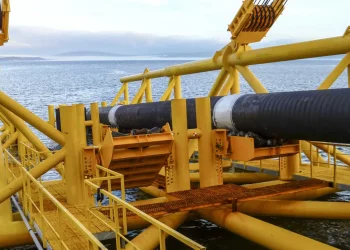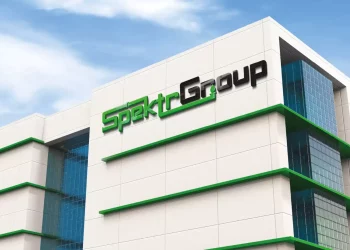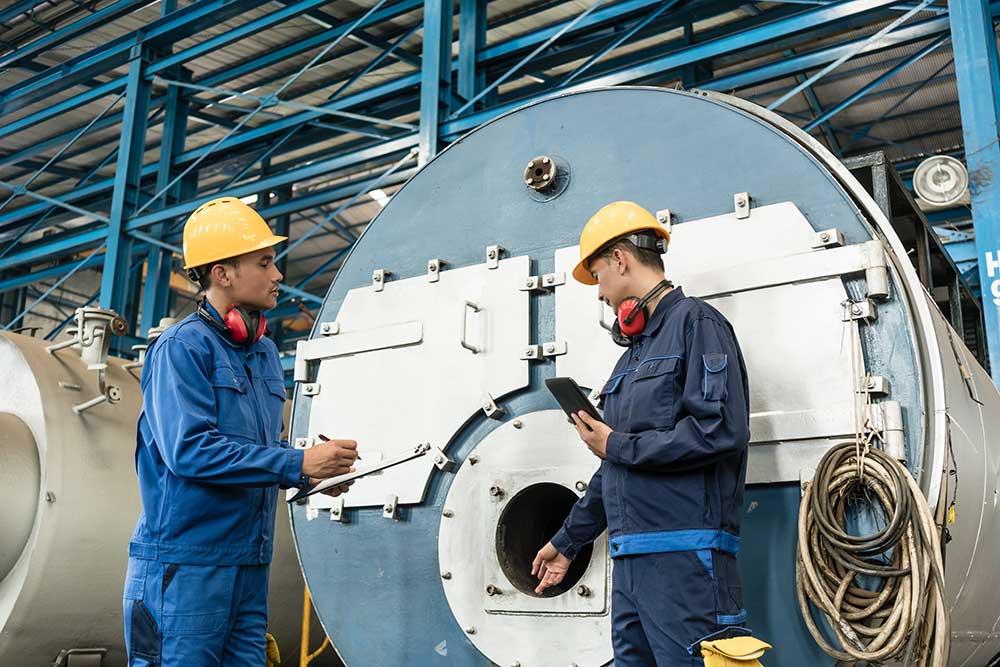SC National Company KazMunayGas, Kazakhstan’s vertically integrated oil and gas company, announced its IFRS financial results and operating highlights for the three-month period ended 31 March 2018.
 In first quarter of 2018, Kashagan oil production increased 79% to 2,866 thous. tonnes (the KMG share was 237 thous. tonnes). The growth was due to the commissioning of a crude gas reinjection system at the end of August 2017, the commissioning of offshore and onshore technological equipment and facilities and oil production stabilisation measures;
In first quarter of 2018, Kashagan oil production increased 79% to 2,866 thous. tonnes (the KMG share was 237 thous. tonnes). The growth was due to the commissioning of a crude gas reinjection system at the end of August 2017, the commissioning of offshore and onshore technological equipment and facilities and oil production stabilisation measures;
- Construction work to upgrade the Atyrau refinery was completed in 2017. After completion of testing and commissioning, full operating activity is expected to be reached in 2018 H1;
- The Pavlodar and Shymkent refineries switched to producing K4 and K5 standard fuel from January 2018, increased light products volume and increased the value of the basket;
- KMG EP was delisted from 10 May 2018. NC KMG and KMG EP together now hold approximately 99.6% of the common shares;
- In April 2018, Mr Alik Aidarbayev was elected to the KMG Board of Directors. As the Deputy Chairman of the Samruk-Kazyna Management Board, he represents the main KMG shareholder;
- In accordance with an amendment to an oil supply agreement signed in December 2017, the KMG Group received an additional two prepayment tranches in January of USD 250 mln, and in first quarter of 2018 partially repaid USD 250 mln;
- In April 2018, KMG received dividends from TCO of 102 mln. USD;
- In April-May 2018, KMG completed a liability management exercise to fully redeem four series of Eurobonds due in 2020, 2021, 2025 and 2043 for a total nominal amount of USD 3.1 bln, which had been financed through Eurobonds of USD 3.25 bln in three series, comprising (i) 500 mln USD at 4.750%, notes due 2025; (ii) USD 1,250 mln at 5.375%, notes due 2030; and (iii) USD 1,500 mln at 6.375%, notes due 2048.
First quarter 2018 Financial Results
In first quarter of 2018, revenue was 784 bln tenge (USD 2,425 mln), up 32% year-on-year. 24% higher global oil prices year-on-year and increased oil sales pursuant to the KMG Group’s long-term oil and LPG supply agreement[5]had a positive impact on sales dynamics. In first quarter of 2018 sales under the agreement rose 35% year-on-year to 373 bln tenge (USD 1,155 mln).
The Company’s cost of sales increased 56% year-on-year to 797 bln tenge (USD 2,465 mln), mainly due to the rising cost of crude oil purchased from TCO under the long-term oil and LPG supply agreement by 223 bln tenge (USD 690 mln), and growth in natural gas exports to China and Uzbekistan of 21 bln tenge (USD 66 mln).
KMG’s operating loss in first quarter of 2018 amounted to 127 bln tenge (USD 394 mln) vs. 9 bln tenge (USD 28 mln). KMG operating profit does not include revenue from the sale of oil and oil products through KMG I, due to the fact that KMG I is being sold, and for that reason is treated as discontinued operations in the KMG consolidated financial statements. However, due to a change in the purchasing mechanism, the cost of sales related to the purchase of oil and oil products for KMG I trading purposes began to be accounted for in KMG operating profit starting from third quarter of 2017. As a result, KMG operating losses have increased year-on year. In turn, KMG net profit is recognised and recorded as profit from discontinued operations[6].
KMG’s share in the net profit of its associates and joint ventures increased 92% year-on-year to 165 bln tenge (USD 510 mln), with the main growth driver being TCO. In first quarter of 2018, TCO profit increased 63% year-on-year, with KMG’s share amounting to 105 bln tenge (USD 324 mln).
Net profit increased 98% year-on-year to 204 bln tenge (USD 632 mln) vs. 103 bln tenge (USD 319 mln).
Taxes and other obligatory payments amounted to 290 bln tenge (USD 898 mln).
In first quarter 2018 capital expenditure was 82 bln tenge (USD 253 mln), which is a 44% year-on-year drop, caused mainly by the completion of investment in downstream operations.
KMG Group net debt as at 31 March 2018 amounted to 1,913 bln tenge (6,008 mln USD).
Cash and cash equivalents, including cash in deposits, fell 23% year-on-year to 2,282 bln tenge (USD 7,169 mln).
First quarter 2018 Operational Results
In first quarter of 2018, total oil and gas condensate production across the KMG Group amounted to 5,862 thous. tonnes, which is 2% higher than the same period last year.
In the first quarter of 2018, the KMG share in Kashagan (North Caspian Operating Company N.V. – NCOC) production increased 79% year-on-year to 237 thous. tonnes of oil and 138 mln m3 of gas, which was as a result of the commissioning of a crude gas reinjection system at the end of August 2017, the commissioning of offshore and onshore technological equipment and facilities and oil production stabilisation measures.
TCO registered a small increase in oil and gas production. KMG’s share in TCO was 1,460 thous. tonnes of oil and 815 mcm of gas, which is up 2% on first quarter 2017, due to steady production plant performance.
KMG’s share in Kazakhoil Aktobe LLP production amounted to 70 thous. tonnes of oil, which is 20% lower than in first quarter of 2017. The decrease was due to a reduction in gas combustion limits in 2018, as well as technical limitations on gas intake at the Alibekmola and Kozhasai fields. The same limits caused a 29% reduction in gas production in first quarter of 2018 compared to the same period in 2017.
Oil and condensate production in JSC Ozenmunaigas increased slightly by 1% to 1,352 thous. tonnes due to ongoing geological and technical measures. At the same time, gas production fell 7% to 146 mln m3due to a natural decline in production at mature fields. It is important to note that KazGPZ LLP condensate and natural gas production is included in JSC Ozenmunaigas production due to the transfer of subsoil use rights.
Kazakhturkmunai LLP produced 92 thous. tonnes of oil or 12% less than in the first quarter of 2017. Gas production was also down year-on-year, by 39%, at 49 mln m3. The general decrease in production was caused by technical limitations on gas volumes received at the Tolkyn gas treatment unit.
In the first quarter of 2018, a decline in production was observed at the mature fields of JV Kazgermunai, PetroKazakhstan Kumkol Resources and Turgai Petroleum due to natural decreases in oil production and increases in the water cut.
Hydrocarbon reserves (proven A, B and C1 category)
As at 31 December 2017, according to the Kazakhstan State Commission for Mineral Reserves, KMG’s liquid hydrocarbon reserves (net of the KMG share) amounted to 683 mln tonnes[7] (7,954 mln. barrels of oil equivalent[8]).
KMG’s proven hydrocarbon reserves decreased by 4% or 29 mln tonnes (300 mln barrels of oil equivalent) from the previous year mainly due to annual production and the revaluation of Karachaganak Petroleum Operating B.V. (KPO) reserves. In 2017, the Kazakhstan State Commission for Mineral Reserves reaffirmed KPO’s oil recovery factor, and as a result reserves fell by 24% (11 mln tonnes) year-on-year.
Oil and gas transportation
In the first quarter of 2018, KMG transported 16,711 thous. tonnes[9] (net of the KMG share) of oil by pipeline, which is a 2% increase year-on-year.
The main drivers for oil transportation growth were Caspian Pipeline Consortium (CPC) and Kazakhstan-China Pipeline (KCP) due to increased oil supplies by shippers to the systems, and increases in oil production at Kashagan. In the first quarter of 2018, KMG’s share in CPC and KCP rose 15% and 3% year-on-year to 3,102 thous. tonnes and 1,999 thous. tonnes of oil, respectively.
Oil transported by sea increased 14% year-on-year to 1,713 thous. tonnes due to tanker reorientation and the fact that regulations tightened in the first quarter of 2017 for sulphur content in crude oil entering the Transneft pipeline system on the Aktau-Makhachkala route. As a result, Kazakhstan suppliers agreed to increase heavy crude oil shipments in 2018.
The volume of gas transported using KMG’s main gas pipelines increased 5% year-on-year in the first quarter of 2018 to 26.8 bln m3 thanks mainly to gas production growth, increased domestic demand in Kazakhstan and increased oil export transportation.
Gas transported for export increased by 40% year-on-year to 5.6 bln m3, mostly due to increases in exports to China, including through the AGP and BSGP pipelines starting from October 2017, in accordance with an export contract between KTG and PetroChina International Company Limited.
Refining
A total of 4,846 thous. tonnes of hydrocarbons were refined, net of the KMG operating share, for the first quarter of 2018, which is up 13% on the same period in 2017.
Hydrocarbon refining output in Kazakhstan refineries, net of the KMG operating share, in the first quarter of increased by 7% compared to 2017 to 3,242 thous. tonnes:
- 1,277 thous. tonnes (100%) at the Atyrau Refinery, up 5%, due to an increase in supply volume;
- 1,314 thous. tonnes (100%) at the Pavlodar Oil Chemistry Refinery, up 5%, in accordance with approved production programmes;
- 597 thous. tonnes (50%) at the Shymkent Refinery, a 20% increase due to upgrade work in the first quarter of 2017, and due to an increase in oil supplies in the first quarter of 2018;
- 56 thous. tonnes (50%) at Caspi Bitum, up 117%, due to increased oil supplies.
Refining at KMG I plants increased 27% year-on-year to 1,603 thous. tonnes, of which:
- 1,527 thous. tonnes (100%) was produced at the Petromidia refinery (Romania), which is an increase of 27% thanks to favourable weather conditions in the first quarter of 2018, as well as the unplanned halt in reforming installation in February 2017;
- 77 thous. tonnes (100%) at the Vega refinery (Romania), which is an increase of 26%, thanks to increased supplies of raw.



